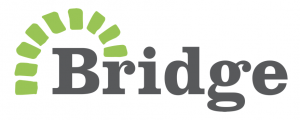This website uses cookies so that we can provide you with the best user experience possible. Cookie information is stored in your browser and performs functions such as recognising you when you return to our website and helping our team to understand which sections of the website you find most interesting and useful.
Stopping early marriage will boost girl-child education –MD, Bridge Academies

Managing Director, Bridge International Academies, Nigeria, Foyinsola Akinjayeju, in this interview with GRACE EDEMA, speaks about the challenges of bringing out-of-school children back to school and the effect of the current economic crisis on the education sector
With the economic hardship in the country, we would have had an increase in the number of out-of-school children. What’s your suggestion for tackling the out-of-school children crisis in Nigeria?
Tackling the out-of-school children crisis requires a multi-faceted, multi-party approach that addresses both economic and social barriers to education. The government is playing a part as primary education is both free and compulsory, funded by the government but it is unrealistic to expect the government to tackle the issues alone given the required investment and recurring costs associated with providing education. Education is not cheap, and the harsh economic developments exacerbate the cost of providing service. The economic challenges are not only affecting individuals and households, they also affect companies and even schools. With that said, it is important to note that there are entities already doing phenomenal work in providing education to the economically disadvantaged, either for free or at very affordable rates. These parties need a supportive environment for them to survive so that they can keep children in school, and for them to thrive so they can take on more pupils. Requesting schools to be registered to operate, and demanding accountability from schools is great, however, these should be pursued with a mindset of maintaining quality standards, without placing onerous demands that make it strenuous for the schools to keep the lights on. In addition, the concern of having more out-of-school children is a wake-up call for increased and improved collaboration between governments, charitable organisations, corporate organisations, individuals, schools, community, and religious leaders, and civil society groups to expand access to quality yet affordable education through scholarships, endowments et cetera.
As an educator, what are some key factors that prevent the girl-child from pursuing higher education, especially in challenging and disadvantaged areas?
Click HERE to register for our IWD Webinar
A few come to mind including household income, access to quality education, the pupils’ academic performance, how supportive their learning environments and families are, and whether they have positive role models and access to mentorship opportunities; if parents have the resources to send their children to school and are not forced to choose between feeding them or educating them because they cannot afford both; when they do not have to send them into early employment such as street hawking and the like; when they do not have to choose which child goes to school and which one stays at home because they cannot afford to keep all in school or have a preference for the boy-child, then we will see more girls staying on and advancing beyond basic education level to secondary schools and even on to the tertiary levels.
Addressing gender stereotypes and bias, and other social norms such as early marriages is also imperative, as is ensuring that girls grow in positive home environments where gender equality is embraced. Scholarships and other forms of financial assistance, as well as mentorship programmes to ensure girls have equal opportunities to thrive academically, are also necessary. We should not rule out the impact of insecurity as well. A safe environment will encourage more enrolment and retention. We are well aware of the recent kidnappings of over 200 students in Kuriga, I imagine that parents in that area will dread sending their children to school.
Some weeks ago, the House of Representatives suggested that schoolchildren should be made to undergo mandatory drug tests because of the prevalence of substance use in schools, do share your thoughts, is this the solution?
The resolution draws further attention to the worrying trend of drug and substance abuse among children and adolescents, and this must be acknowledged and commended. A few questions do come to mind, however, such as where will the tests be administered – on-site (that is in the schools), or in accredited facilities? Who will fund testing? What happens to students who test positive for drugs/substances? And the list goes on. The goal of any intervention should be to correct and rehabilitate, and should not entail disrupting the education of those who may be engaging in drug or substance use. It is poignant to see and hear that access to drugs and substances is almost unhindered, even for children and young adults and this must give us all cause for pause. I would also recommend training for teachers to enable them to identify tell-tale signs of drug abuse, and there should be a list of accredited facilities manned by certified professionals where children suspected to be using drugs can be referred to, for proper assessment and rehabilitation support. It is imperative that the parents and guardians of these children are carried along throughout the process and care must be taken to avoid any form of prejudice, humiliation, or discrimination of the children involved. Upstream measures to prevent drug use are also necessary and efforts to curb proliferation of drugs and substance sale must also be ramped up with a sense of urgency. These should include community engagement to address the root causes of substance abuse among schoolchildren, and collaborations between schools, families, communities, and relevant authorities to promote positive behaviour and healthy choices among our children and youth. Building strong parent and community networks to drive change in different areas is one of the strategies. I encourage the government to embrace this same community-based approach to solving the issue.
What are the positive benefits of using technology to drive reform in the education sector?
The benefits of technology use in education are numerous and I should know, given that technology underpins everything we do to provide life-changing education. Technology can be leveraged to provide transparency on everything going on in a classroom. It helps ensure that all the fundamentals for effective teaching and learning are available and operational consistently. Let me break this down. Leveraging internet-connected devices that help to capture attendance data of headteachers, teachers, and pupils is a good idea. The devices have geo-mapping functionality and as such take the precise location coordinates at the moment each teacher and head-teacher marks attendance and therefore can detect if they are in school or not. Similarly, the device records completion rates for every lesson taken each school day, thereby providing visibility into what children are being taught. With the foregoing, an education administrator would know that teachers are in school, get there on time, are teaching their lessons and that pupils are in class. It doesn’t end there. Education managers should be fussy about the quality of lessons the pupils are taught so, lessons must be standardised and downloaded onto every teacher’s device which they can review up to two weeks in advance. Even more interesting is the deployment of a marking app that marks and scores pupils on test and examination scripts, thereby reducing the risk of human error and the burden of analysing thousands of data points manually. With test scores available on a cloud server, teachers can analyse subjects and topics where additional time, attention and focus should be provided to help pupils do better. I could go on and on.
International Women’s Day was celebrated last week, kindly describe the Nigerian woman
Nigerian women embody the Nigerian spirit. They are beautiful, resourceful, enterprising, strong, resilient, “never-give-uppers” (If I may use the term), and are driven to break the glass ceilings as we have been seeing over time and so much more lately. We are also life builders, nurturers, culture-shapers, social architects, and change-makers whose contributions to the development of families, communities, societies, and economic sectors cannot be overlooked or ignored.
What advice do you have for younger women who are trying to find identity or living without purpose?
My advice to younger women is to be true to themselves. There is so much freedom and joy that comes with embracing one’s unique strengths, passions, and aspirations. Also, seek out opportunities for continuous education, growth, and self-discovery. Surround yourself with supportive mentors and role models who inspire and empower you to pursue your dreams. Furthermore, remember that your voice matters, and you have the power to make a positive impact in your community and beyond. Finally, know this, Impossible is nothing, so never, ever give up.
Bridge International Academies is a network of low-fee schools in Nigeria, providing education and learning materials for free, how have you been able to sustain these over the years?
The scourge of Out-Of-School children in Nigeria, coupled with mixed learning outcomes observed even among children in schools is what drives our commitment to the provision of affordable quality education. Bridge schools have been running in Nigeria for just under a decade and our sustainability formula combines an integrated use of technology, rigorous and continuous teacher training, process standardisation and regular monitoring among other factors. These are geared towards keeping costs low while delivering high-quality education which in turn translates into top-level educational outcomes for our pupils and peace of mind for their parents. We also can provide learning resources including textbooks and homework books at no additional cost to pupils. With this, our parents see tremendous value in what we offer and are encouraged to stay with us and recommend us to others. However, the current economic situation is impacting an increasing number of parents who are struggling to pay, so we partner with individuals, corporate and non-governmental organisations to provide scholarships to pupils whose parents need financial support.


